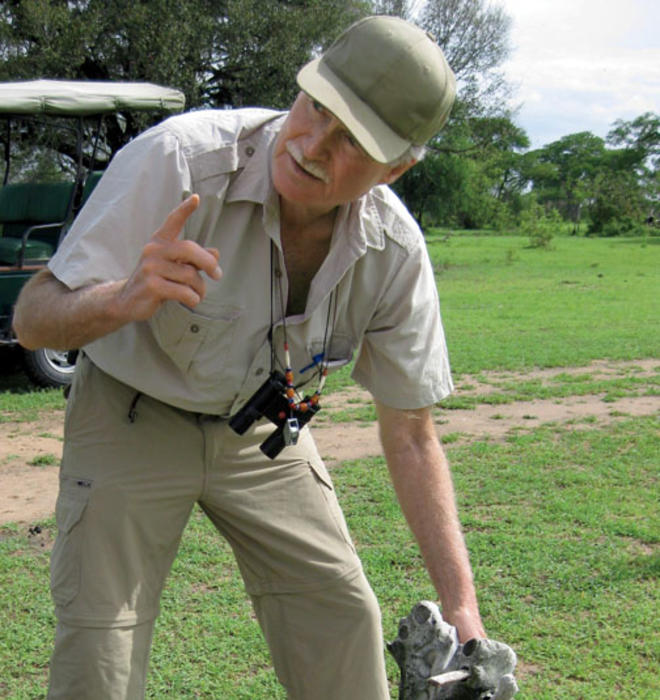
May 19, 1940 – Nov. 11, 2012
Farish Jenkins’ students at Harvard sometimes likened him to another academic: Indiana Jones, the fictional professor and adventurer who never lacked for style. Jenkins, after all, had trained as a military officer, did fieldwork in Africa and the Canadian Arctic, and was known for his great charm, his suit vests and ties, and his occasionally colorful language.
“Between his polite manner, formal dress, sincere interest in others, and wonderful sense of humor, he was one of a kind,” says his colleague James Hanken, a professor of zoology. “I don’t think I’ve ever met anyone else like him in academia, or anywhere else for that matter.”
Jenkins died in Boston of multiple myeloma.
On four expeditions between 1994 and 2004 to the Canadian Arctic, Jenkins “was a distinctive addition to the landscape: invariably well dressed, and sporting a beloved Czechoslovak rabbit-fur hat, a pocket watch, a flask of vodka, and a gun,” The Economist recalled. “He rigged trip wires and automatic rifle fire to deter polar bears from the camp at night.”
On one trip, Jenkins and his collaborators discovered a fossil estimated to be 375 million years old. The creature, Tiktaalik roseae, had characteristics of both fish and mammals, with bones resembling arms that may have allowed it to crawl onto land — an elusive missing link between fish and land animals.
Jenkins made many other fundamental discoveries, including some of the earliest documented fossils of tetrapods, animals with four limbs. “He developed new laboratory methods for studying the roles of skeleton and musculature during locomotion,” overturning long-accepted theories, says Hanken. Alan Mann, professor of anthropology at Princeton, prominently features Jenkins’ research in his class on human adaptation, citing its great influence on our understanding of the “evolutionary background to human emergence.”
Everyone who met the dapper professor has a story about his devotion to students and his relationships with colleagues. “When I was interviewing for my current position in 2008, Jenkins ushered me into his office, and then, arguing that I must be worn out from all the meetings and talking, told me to ‘just relax’ and to put my feet up on his desk,” says Andrew Richardson ’92, now assistant professor of organismic and evolutionary biology at Harvard. “I protested, but he absolutely insisted, so I eventually did. Then, with a sparkle in his eyes, he turned to me and said, ‘I see you went to Princeton!’ There was a pause, followed up by a smile, and he added enthusiastically, ‘So did I!’ We then spent an hour talking about his adventures in the Canadian high Arctic, which were of great interest to me.”
“He was one of the most conscientious and caring of all the undergraduate advisers here,” says Andrew Berry *91, a Harvard lecturer on evolutionary biology. “Farish was most definitely a rock-star professor, but he also had a way of making each and every undergraduate feel special — minor rock stars themselves.”
Anna Azvolinsky *09 is a freelance writer specializing in science.





No responses yet